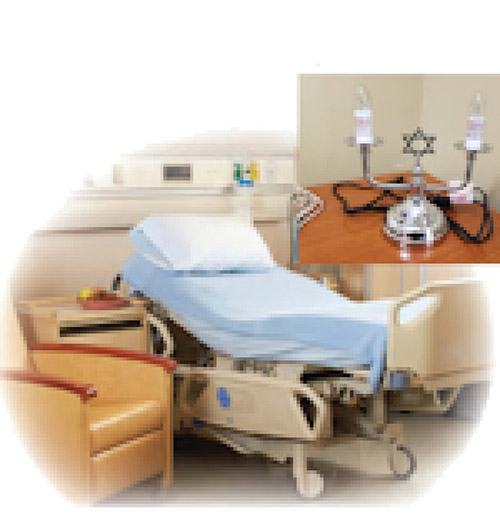
(Courtesy of SMGH) Passaic’s St. Mary’s General Hospital has begun an education program for their management and staff to learn the nuances of the Orthodox Jewish (“frum”) community as part of an overall program to accommodate this community. This past week executives and directors were versed on “Understanding Judaism” based on material prepared by the NJ Chaplain’s Association and other sources. Each department will also be educated in the coming weeks.
“Last year I was honored to be the host for the ‘Annual Law Enforcement Meeting in Preparation for the High Holidays,’ which was organized by the NJ Jewish Business Alliance and NJ Chaplain’s Association,” said George Matyjewicz, community liaison for the hospital. “The purpose of that meeting was to
discuss the upcoming Yomin Noraim to continue to strengthen community and law enforcement relations so that law enforcement understands the potential risks. The material prepared by NJ Chaplain’s Association is excellent and explains our community’s activities, restrictions and nuances that others would not know. The material is so comprehensive, that I used it in addition to other material to educate these professionals at St. Mary’s.”
The education program was entitled “Understanding Judaism—The Professional’s Guide in a Hospital Environment” and covered issues that a professional will encounter when dealing with the frum community and showed actual real-world examples of what patients and visitors encountered in a hospital on Shabbos. It started with a definition of the Jewish community and the challenges that the hospital will encounter in dealing with this community. It covered the genetic diseases and the medical needs of the community along with the resources available.
“Since I converted to Judaism 14 years ago, it is easy for me to relate to both sides and explain the differences,” said Matyjewicz. “Common things we take for granted can be strange to non-Jews—like dress, prayer, tznius, medical procedures and life and death. It’s hard to understand that the body of a deceased patient should not be touched and that a group of volunteers will dress the body. Or that a mohel will circumcise the baby boy, not a doctor in the hospital.”
The session then covered Shabbos and Yom Tovim and what patients and visitors need in a hospital—like Shabbos candles, when candles may not be allowed in the hospital. It also discussed issues of signing the registration when admitted on Shabbos, or even entering the hospital because of those electronic doors. Then, of course, there are the electronics in the room—the call button, the electronic bed controls, the lights on/off when one walks in a room.
Before even getting to the hospital on a Shabbos emergency there is the issue of the car. You took your wife to the hospital to have that baby, but now the emergency is over and there is no need to move your car. Attendees were happy to learn that we can move our cars if it is blocking the emergency room entrance and may put other patient’s lives in danger.
Then there are our holidays and some of the needs of patients—like to hear the shofar at Rosh Hashanah, and that we will have people come to the hospital to blow the shofar for patients. And the “short” 13-hour fast on Tzom Gedalia and the 25-hour fast on Yom Kippur. We didn’t discuss Succos or Pesach in detail and will wait for another time.
“The session was very well received with a lot of questions,” said Matyjewicz. “We are now educating department staff so they can be prepared when they get a patient. And everybody knows to call me or the rabbi if they have any questions, which they did last week when we had a frum patient. What I believe was most beneficial was that we aroused awareness in these professionals, so when they see that young lady standing outside the door on Shabbos, somebody can open the door so she can visit her mom without triggering electronics.”
The hospital has been making excellent progress in changes to the facilities to accommodate frum patients—like a Shabbos elevator and Shabbos path, Bikur Cholim Shabbos Room, local kosher food and more. And in the next couple of months they will be doing a series of shiurim and education programs for the kehila. As one prominent rabbi in town said: “It will be nice to have a local hospital service our community needs.”
For more information, email George Matyjewicz at [email protected].










